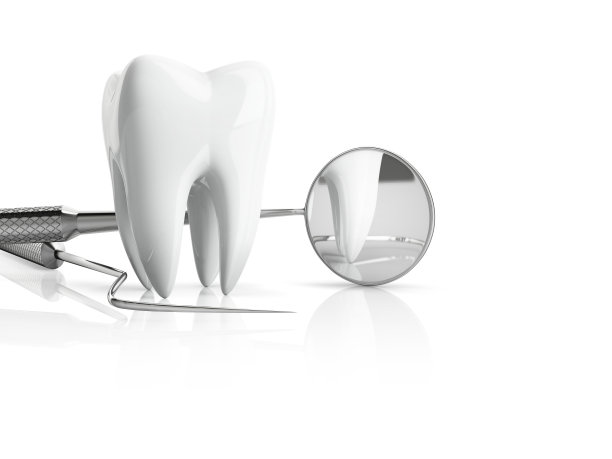The Comprehensive Guide to Understanding Dental Implants Benefits Costs and Long Term Care for Optimal Oral Health
Summary: This article serves as a comprehensive guide to understanding dental implants, focusing on their numerous benefits, associated costs, and long-term care requirements for optimal oral health. Dental implants, an effective solution for missing teeth, enhance aesthetics and functionality, positively impacting overall quality of life. Additionally, the article delves into the financial aspects, including upfront costs and potential insurance coverage. Long-term care strategies for maintaining implants are also discussed, ensuring that patients are well-informed on practices to prolong the lifespan of these dental solutions. Whether considering implants or seeking more information, this guide aims to equip readers with the knowledge necessary for making informed decisions about their oral health.
1. Benefits of Dental Implants for Oral Health

Dental implants offer numerous advantages, making them a popular choice for tooth replacement. One significant benefit is that they closely resemble natural teeth, both visually and functionally. With their ability to blend seamlessly into the existing dental structure, implants restore not only the aesthetic appeal of a smile but also the functionality of biting and chewing.
Furthermore, dental implants help maintain jawbone integrity. When a tooth is lost, the underlying bone begins to deteriorate due to lack of stimulation. Dental implants provide the necessary stimulation to the jawbone, preventing bone loss and maintaining facial structure. This aspect is crucial for long-term oral health and prevents the common "sunken" appearance associated with missing teeth.
Another important benefit is improved comfort and convenience. Unlike dentures, which can slip and cause discomfort, implants are securely anchored into the jaw. This stability allows patients to speak and eat without the fear of displacement, significantly enhancing their quality of life and confidence in social situations.
2. Understanding Dental Implant Costs
The cost of dental implants can be a significant concern for many patients. Typically, the financial investment varies based on several factors, including the number of implants required, the complexity of the procedure, and the geographic location of the dental practice. On average, a single dental implant can cost between $3,000 and $4,500, which includes the implant, abutment, and crown.
Its essential to consider additional costs that may arise during the implant process. These can include preliminary procedures such as bone grafting or sinus lifts, as well as follow-up visits and maintenance. Patients should discuss all these potential costs with their dental provider to have a clear understanding of the financial commitment involved.
Insurance coverage can also play a vital role in managing implant costs. While many dental plans have traditionally excluded implant-related expenses, an increasing number now offer partial coverage. Patients are encouraged to check with their insurance providers and discuss financing options with their dental offices to find the most feasible payment plans.
3. Long-Term Care for Dental Implants
After receiving dental implants, proper long-term care is crucial to ensure their longevity and functionality. Maintaining a diligent oral hygiene routine is the first step for any patient with implants. This includes regular brushing and flossing, along with the use of antimicrobial mouth rinses to reduce the risk of infection around the implant area.
Regular dental check-ups are also essential for monitoring the health of both natural teeth and implants. These visits allow dentists to identify any potential issues early, such as peri-implantitis, which is an inflammatory condition affecting the implant region. Early detection can often lead to simple interventions that prevent further complications.
Additionally, patients should be mindful of their diet to protect their implants. Avoiding excessive consumption of hard or sticky foods can help minimize wear and tear. By combining good hygiene practices, regular dental visits, and mindful dietary choices, patients can significantly extend the life of their dental implants.
4. Making Informed Decisions About Implants
Before proceeding with dental implants, patients must be well-informed about the procedure, risks, and expected outcomes. Consulting with a qualified dental professional to discuss personal health history and individual needs can guide patients in deciding whether implants are the right solution for them.
Furthermore, understanding the different types of dental implants and associated technologies can empower patients. Options such as mini implants or All-on-4 implants may be available for patients who require unique solutions, making it crucial for them to explore every avenue during consultations.
Lastly, consider gathering testimonials and experiences from previous patients. Hearing about others journeys can provide valuable insights and motivate individuals facing similar decisions. With ample information at hand, patients can feel more confident entering the dental implant process.
Summary:
This comprehensive guide provides an in-depth understanding of dental implants, emphasizing their benefits, costs, and long-term care requirements crucial for maintaining optimal oral health. By exploring these aspects thoroughly, readers are equipped to make informed decisions regarding their dental health.
This article is compiled by Vickong Dental and the content is for reference only.


